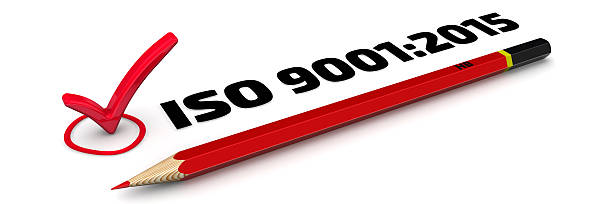If you’ve ever been part of an event management or production company, you know the pressures are high. From coordinating venues and vendors to managing client expectations, there’s always a juggling act happening behind the scenes. And you’re not just dealing with deadlines and budgets—you’re also dealing with the stakes of creating something truly memorable. But imagine if there was a way to guarantee consistency, quality, and efficiency in every single one of your operations, regardless of the scale. Enter ISO 9001 certification.
Now, I know what you’re thinking: ISO 9001 sounds like one of those technical buzzwords that makes your eyes glaze over—and trust me, I get it. But hear me out, because this isn’t just about adding another certificate to your wall. This is about taking your company’s credibility, service delivery, and growth potential to a whole new level.
What is ISO 9001 Anyway?
Before we get into the juicy details, let’s take a quick step back and clarify what ISO 9001 is, so we’re all on the same page.
ISO 9001 is an internationally recognized standard for quality management systems (QMS). Simply put, it’s a blueprint for improving processes, ensuring consistency, and delivering superior products or services. The goal? To enhance customer satisfaction by meeting their expectations and needs. It’s not just about being “good enough”—ISO 9001 pushes you toward consistent excellence in everything you do.
Now, when we talk about ISO 9001 for event management companies, we’re talking about creating a structure that supports better processes and better results. This isn’t about complicating your day-to-day operations; it’s about making them smoother, more reliable, and more efficient.
Why ISO 9001 Certification Matters for Event Management Companies
Let’s be honest: event management and production is a high-stakes game. One wrong move, and you can have a client whose wedding gets rained out or a conference that gets off to a rocky start. But with ISO 9001, you put systems in place that reduce the risk of things slipping through the cracks.
1. Streamlined Processes = Less Stress
With a standard like ISO 9001, everything from booking vendors to managing timelines to post-event follow-ups is standardized. This doesn’t just make your internal processes more efficient—it also makes things run smoother for your clients.
Think of it like organizing a giant puzzle: each piece of your operation—whether it’s booking venues, catering, or security—fits into place more easily because you’ve got clear guidelines on how to handle each task. No more scrambling to find a vendor at the last minute or forgetting key details in a proposal.
2. Improved Customer Satisfaction
Here’s the thing: when your clients trust that your events will go off without a hitch, you build stronger relationships. ISO 9001 helps ensure consistency, which means every event you organize has the same level of quality—whether you’re working on a small corporate event or a massive product launch.
And, let’s not forget that your clients want to feel heard and cared for. With ISO 9001, you’re implementing clear processes to listen to and address their concerns, making sure their feedback is integrated into your future projects. That’s a huge win when it comes to repeat business and positive reviews.
3. Credibility and Competitive Edge
Let’s talk about standing out. Event management companies aren’t just competing against each other for business; they’re also fighting to build trust and credibility in a crowded market. When you get ISO 9001 certification, you’re telling your clients: We take quality seriously, and we’re committed to continuous improvement. That kind of reassurance can make all the difference, especially when clients are deciding between multiple options.
Plus, a lot of bigger clients or corporate accounts might require ISO 9001 certification before they’ll even consider working with you. So, it’s not just about what ISO does for your internal operations; it’s about what it does for your reputation and your bottom line.
4. Risk Management and Compliance
Event production is rife with risks—delayed deliveries, safety hazards, budget overruns. One of the most valuable parts of ISO 9001 is that it forces you to put systems in place to identify and manage these risks. Whether it’s establishing clear safety protocols or having a backup plan in case something goes wrong, ISO 9001 helps ensure you’re ready for anything.
Also, there’s the matter of compliance. Different regions, industries, and clients may have specific requirements or standards they expect you to meet. With ISO 9001, you’re already ahead of the game, ensuring that your processes align with the necessary regulatory requirements and industry standards.
How Does ISO 9001 Help You Manage Events Better?
Great, so now we know that ISO 9001 boosts your processes, increases client satisfaction, and gives you a solid competitive edge. But how exactly does it work when it comes to event management? Let’s break it down.
- Clear Communication and Roles
In event management, communication is key. But sometimes, the person in charge of the catering might not be talking to the person managing guest registration, and suddenly, the event feels disjointed. With ISO 9001, you create standardized communication practices—so everyone on your team knows what’s going on, when it’s going on, and what their role is. This eliminates the confusion and chaos that can often come with managing multiple stakeholders.
- Quality Control at Every Stage
ISO 9001 encourages companies to monitor and measure performance at each stage of the process, which is incredibly useful when you’re managing multiple moving parts like event production. You’ll track progress, identify potential issues early, and address them before they become big problems. This could be anything from checking the quality of a speaker’s presentation materials to ensuring the sound system is in top shape.
- Documenting Everything
Here’s something that might sound a little dull, but trust me, it’s crucial: documentation. When you get ISO 9001 certified, you’re required to have clear, accurate records for all your projects. This might include contracts, checklists, communications, and any adjustments made along the way. That’s not just busywork—this documentation is your safety net. It ensures transparency, accountability, and a solid foundation for handling disputes, refunds, or client concerns if anything goes wrong.
- Continuous Improvement
ISO 9001 doesn’t just let you coast after you get certified. Instead, it encourages continuous improvement. Your business is constantly evolving, and the certification ensures that your team isn’t settling for mediocrity. With regular audits, feedback loops, and internal reviews, you’re always looking for ways to improve processes, optimize efficiency, and increase customer satisfaction. This is the kind of mindset that helps you stay ahead of the competition, no matter what trends emerge in the industry.
Getting Certified: The Roadmap
Okay, so how do you actually get ISO 9001 certified? It’s not as intimidating as it sounds. The process can vary a bit depending on your company’s size and structure, but here’s a general roadmap:
1. Understand the Requirements
The first step is reading up on the ISO 9001 standard itself. It’s about 30 pages of clear guidelines for creating a quality management system. Don’t worry—there are plenty of resources available online to help you understand the standard.
2. Assess Your Current Processes
Next, you’ll need to take a long, hard look at your company’s current processes. Are they aligned with ISO 9001’s principles? Where are the gaps? Be brutally honest with yourself here. The goal isn’t to achieve perfection right away but to identify areas for improvement.
3. Implement Changes
Now comes the fun part: actually making the changes. This might mean establishing new protocols, improving your documentation system, or training your team. It’s all about aligning your operations with the ISO 9001 standard.
4. Conduct Internal Audits
Before you bring in an external auditor, do your own internal checks. Conduct an audit to ensure everything is in place. It’s better to catch issues early than have them pop up when the official audit takes place.
5. Get External Certification
Once you feel ready, you’ll bring in a third-party certification body to conduct the official ISO 9001 audit. If you pass, congratulations! You’ll receive your certificate, and you’ll officially be an ISO 9001-certified event management company.
The Bottom Line: Is ISO 9001 Worth It?
Look, I get it—getting ISO 9001 certification takes effort, time, and resources. But the benefits far outweigh the costs. Whether it’s ensuring top-notch service for your clients, reducing risks, or boosting your credibility in the marketplace, ISO 9001 is a strategic move that can elevate your event management business in ways you might not even expect.
Sure, it’s an investment, but it’s one that pays off in the long run. And in a competitive industry like event management, who wouldn’t want to give their company that edge?
So, if you’re ready to streamline your processes, enhance client satisfaction, and step up your game, ISO 9001 might just be the certification your company needs to thrive.




